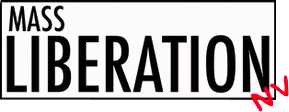Story by Jagada Chambers
LAS VEGAS, NV – Financial support to combat the COVID-19 pandemic has arrived in Nevada as promptly as the virus closed the State down. The uncertainty the virus has caused Nevadans in the midst of the shutdown, seems to be coupled with the uncertainty of what the state is going to do with the funds. During the May 13th Legislative Interim Finance Committee meeting’s discussion on the Coronavirus Aid, Relief, and Economic Security (CARES) Act the State’s lack of vision was too easy to see.
The meeting prior magnified the importance of the May 13th meeting as the Nevada Department of Corrections (NDOC) made a stiff request to the Interim Finance Committee (IFC) for allocation of more than $7 million dollars from the IFC’s general fund. It was more troubling than baffling that NDOC would have the audacity to request $2.1 million for Prison Medical Care and another $1.3million for High Desert State Prison yet had no COVID-19 provisions in place for contact tracing or mass-testing for any of its population.
State Finance Director Susan Brown presented to the Legislative IFC and could not, or would not reveal when the over $800 million was even received. Describing the channels in which the money will follow, the criteria in deciding the benefactors, or even accountability measures for those awarded funds were all a mystery.
“We don’t have any specific details at this time,” Brown admitted.
In a meeting that was fittingly two-months-to-the-day after Governor Sisolak declared a State of Emergency in response to the virus, the efforts and initiatives from the State have not been at the level our most marginalized communities can withstand. With New Era Las Vegas turning into a food distribution center for our people, the state having no vision for our folks is unacceptable.
The most damaging reality for communities of color is likely underway. With federal, state, emergency and even donated dollars flooding Nevada, where the dollars are allocated will prove pivotal. This is not the time for padding of general funds and hoarding of dollars aimed to help the people. Differentiating the funds has to be primary in the State’s focus, or double-dipping (getting funding from multiple sources for one void) could be the demise of the community’s resources.
For instance, the only major effort on behalf of the community was the quarantine complex built at Cashman called ISO-Q. The facility allegedly costs $8 million, split between the City of Las Vegas and Clark County. Of the $800 million received, the city netted $119 million and Clark County $295 million. The desire to reimburse dollars that have already been spent will be the first phase and the most important in tracking the exact distribution of the funds.
Nevada lost $160 million of gaming revenue taxes these past few months. Organizing a sub-committee and tasking this committee with creating a conducive and inclusive space which prioritizes these dollars to help those most impacted will create a sensible course through COVID-19.
The meeting prior magnified the importance of the May 13th meeting as the Nevada Department of Corrections (NDOC) made a stiff request to the Interim Finance Committee (IFC) for allocation of more than $7 million dollars from the IFC’s general fund. It was more troubling than baffling that NDOC would have the audacity to request $2.1 million for Prison Medical Care and another $1.3million for High Desert State Prison yet had no COVID-19 provisions in place for contact tracing or mass-testing for any of its population.
State Finance Director Susan Brown presented to the Legislative IFC and could not, or would not reveal when the over $800 million was even received. Describing the channels in which the money will follow, the criteria in deciding the benefactors, or even accountability measures for those awarded funds were all a mystery.
We don’t have any specific details at this time,� Brown admitted.
In a meeting that was fittingly two-months-to-the-day after Governor Sisolak declared a State of Emergency in response to the virus, the efforts and initiatives from the State have not been at the level our most marginalized communities can withstand. With New Era Las Vegas turning into a food distribution center for our people, the state having no vision for our folks is unacceptable.
The most damaging reality for communities of color is likely underway. With federal, state, emergency and even donated dollars flooding Nevada, where the dollars are allocated will prove pivotal. This is not the time for padding of general funds and hoarding of dollars aimed to help the people. Differentiating the funds has to be primary in the State’s focus, or double-dipping (getting funding from multiple sources for one void) could be the demise of the community’s resources.

